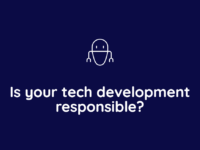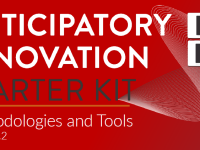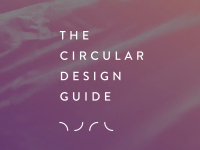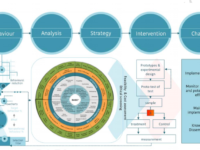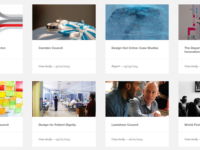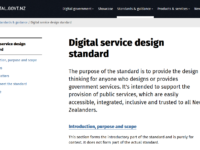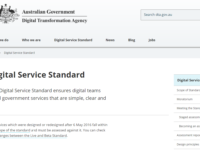Toolkit Navigator
A compendium of toolkits for public sector innovation and transformation, curated by OPSI and our partners around the world

Translating global sustainable development goals into concrete actions for systemic change remains one of the greatest challenges of our times, requiring changes in the structures of the sociotechnical systems that define our world. Value Network Mapping helps in getting a grip on the structure of these sub-systems and enables users to identify together intervention points that make sustainability transitions happen. The method helps users co-create such changes, while balancing individual needs…
The resource authors define responsible tech as applying an ethical approach when developing, using and distributing new technology in a way that contributes to an environmentally, socially and economically sustainable society.
The Responsible Tech: Self-Assessment Tool is an online tool that takes users through a series of structured questions in order to enhance a responsible approach to tech development work. The tool can be used in the intervention, development and distribution of new…
The Anticipatory Innovation Starter Kit (AISK) offers a step-by-step approach to access a set of methodologies and tools to solve organisational challenges in the area of anticipatory innovation governance. Developed by the Experimentation Lab for Public Administration (LabX), part of the Administrative Modernisation Agency (AMA) in Portugal, the starter kit intends to be an actionable tool to envisage and anticipate changes in public sector organisations.
Users start in a "Pool of Problems"…
The current big shift in management - both public and private - is from linear models to circular models. This resource was designed to help innovators create more elegant, effective and creative solutions for circular economy. This resource allows users to explore new ways to create sustainable, resilient, long-lasting value in the circular economy. While it is oriented towards private sector manufacturing and products, it can also be helpful for public sector organisations to think about…
Australia's BizLab, within the Department of Industry, Innovation, and Science, was established in 2016 and launched BizLab Academy in 2018. The goal of the academy is to teach Human Centred Design (HCD) to department employees, but also the rest of the Australian Public Service. The academy aims to strengthen the public sector's capability for evidence-based policy and service design while at the same time instilling a citizen-centric culture and building an alumni of human centred design…
BASIC (Behaviour, Analysis, Strategies, Intervention, and Change) is an overarching framework for applying behavioural insights to public policy from the beginning to the end of the policy cycle. It is built on five stages that guides the application of behavioural insights and is a repository of best practices, proof of concepts and methodological standards for behavioural insights practitioners and policymakers who have become interested in applying behavioural insights to public policy.
The…
The resource is both an online catalog of resources as well as a publication. Combined, they comprise a basic but comprehensive introduction to service design and a selection of service design tools. The resources include the fundamentals of service design, an explanation of the Double Diamond design process and how it is used in service design, what to expect when working with a designer, and tools and methods that service designers use in the creative process. The publisher is considered the…
This step-by-step toolkit describes an inclusive approach to recruiting participants for public consultation or engagement processes. The publishers designed the Civic Lottery process to mitigate the shortcomings and distortions produced by traditional recruitment methods. The approach introduces randomization at multiple stages of the participant recruitment and selection
process. This toolkit is best for those who have decided that a reference panel is right for their situation (see the…
The purpose of the standard is to provide guidance for those in the New Zealand government or anyone who designs or provides government services regarding the provision of accessible, integrated, inclusive public services. It includes principles, rationale, information on how to meet the standard, related implementation guidance and resources, and a glossary.
The purpose of the standard is to provide guidance for those in the Australian government or anyone who designs or provides government digital services regarding the provision of simple, clear and fast services. It includes 13 criteria, rationale, information about meeting the standard, design principles, service design and delivery process, related training and guides, and a glossary.
The resource also includes downloadable posters.


